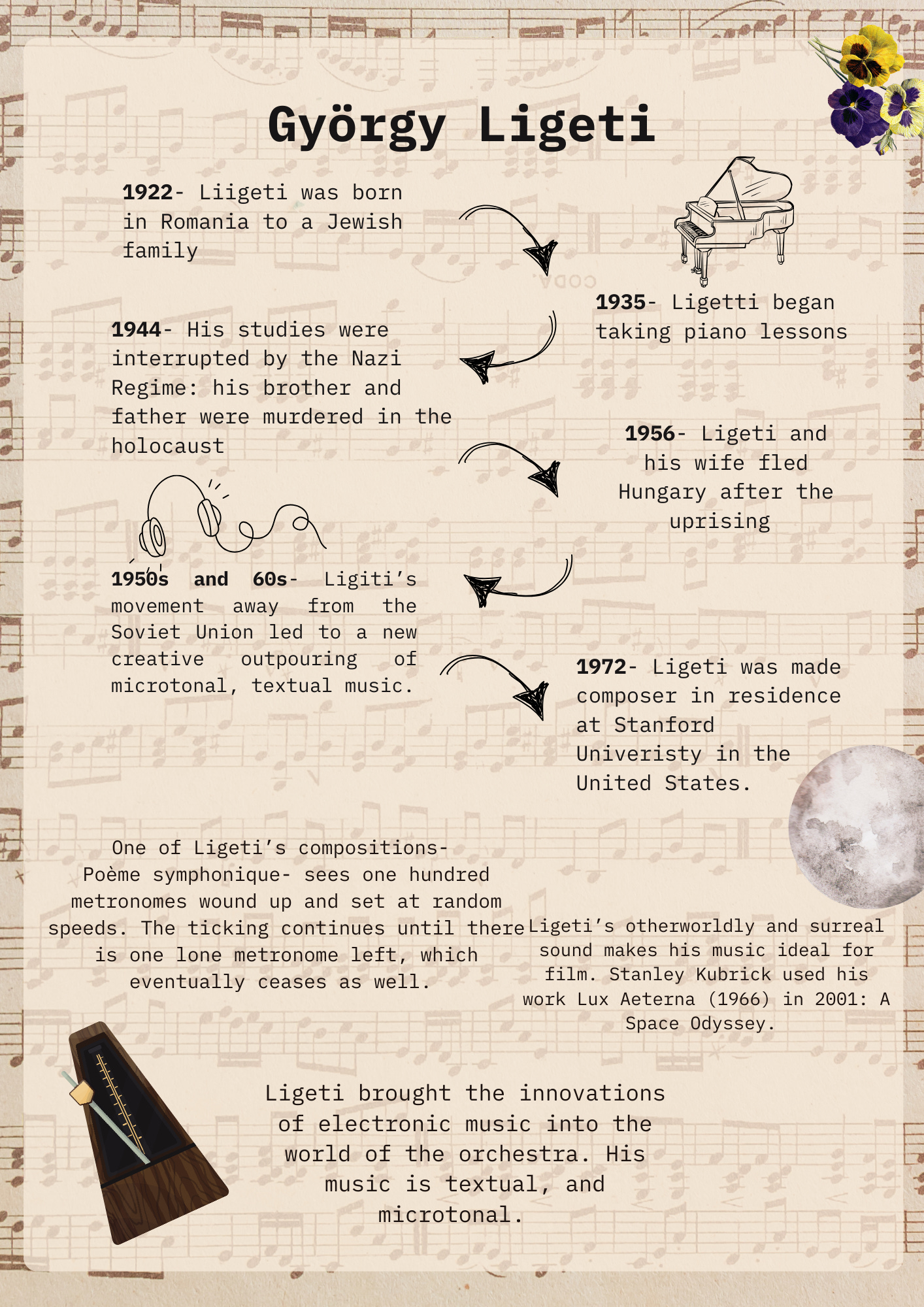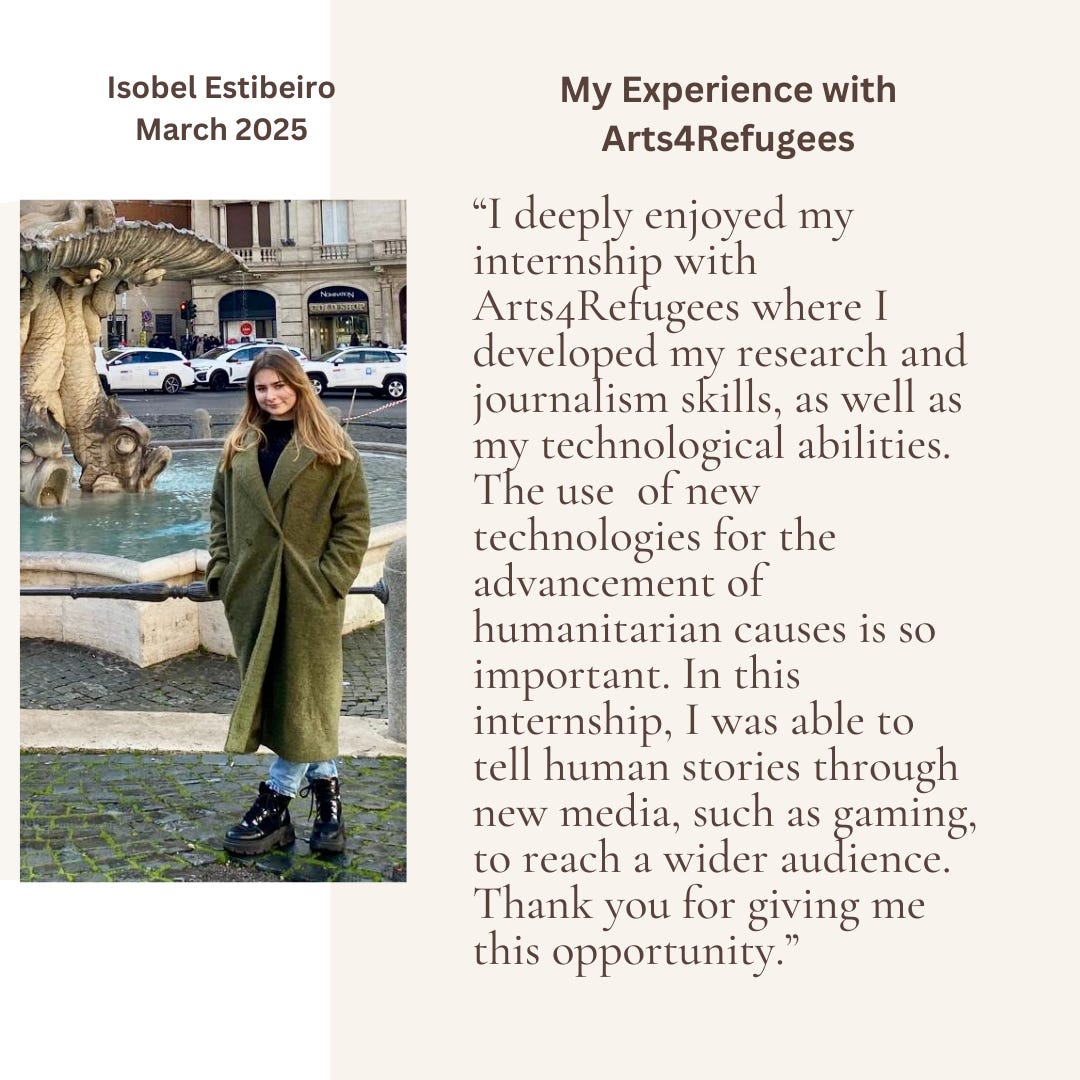100 Metronomes,1 Last Tick: This Composer Faced Mortality With Sound. ⏳🎶
Play & learn about György Ligeti's arty refugee experience 🎮
Click here to play & learn.
Back Story
György Ligeti was a Hungarian- Austrian composer, whose life was marred by conflict and tragedy, which echoes through his music. He was born in 1923 in Transylvania, to a Jewish family. At the age of 13, he began to take piano lessons, and was accepted into Cluj Conservatory as a student composer when he was 18. However, his studies were violently cut short in 1944, when the Nazi regime recruited him as a forced labour. His brother and father were murdered in the holocaust. The second major upheaval of Ligeti’s life occurred in 1956, when the Hungarian Revolution forced him and his wife to flee to Vienna. In his escape, he had to leave much of his music behind. Perhaps, this provided him with a necessary blank slate, and separation from the trauma of his youth. Ligeti would go on to revolutionise modern, electronic music, by bringing electronic innovations to orchestral music for the first time.
The conflict that marred his early life can be heard in his later music: textual and microtonal, it can feel alienating and other worldly, yet also strangely familiar. Time and mortality are recurring themes: one piece- Poème Symphonique- features one hundred metronomes wound up and set to random tempos on stage. The ticks slowly die off, until only one is left standing. Eventually, the final metronome omits the inevitable, final tick. Ligeti was closely involved with the rising electronic movement in the 1960s and was influenced by the work of Karlheinz Stockhausen. However, he rejected the use of electronic instruments to create artificial sounds, instead taking the textual sound of electronic music, and reproducing it with physical instruments. Despite its resounding echoes of trauma and morality, his music is always experimental and forward looking. Sometimes, there is a sense of comedy and playfulness in its absurdity. Strange uncertainty characterises much of his music. This ambiguity is, for Ligeti, profoundly human.
Sources
https://www.britannica.com/biography/Gyorgy-Ligeti
György Ligeti | Hungarian Avant-Garde Composer | Britannica
https://holocaustmusic.ort.org/resistance-and-exile/gyoergy-ligeti/
https://www.theguardian.com/music/tomserviceblog/2012/aug/27/gyorgy-ligeti-contemporary-music-guide
In this post Isobel highlights the arty refugee experience of György Ligeti. She is a citizen journalist on a placement with us organised by Oxford University Career Services. She also organised the micro game to make the journalistic experience interactive.
Thank you for reading an A4R 🎨 Post. Don’t forget to visit our gift shop here. Every purchase scales our impact and pays our bills.





